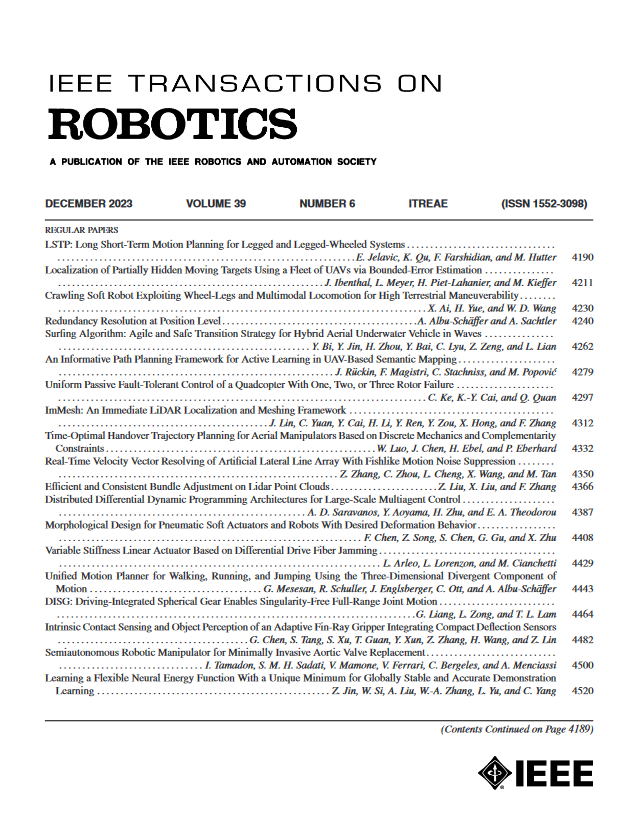Shared Control in pHRI: Integrating Local Trajectory Replanning and Cooperative Game Theory
IF 9.4
1区 计算机科学
Q1 ROBOTICS
引用次数: 0
Abstract
In this article, we propose a two-stage shared control framework for physical human–robot interaction (pHRI) that addresses the inconsistency of human–robot commands and consider the influence of environmental information. In the human–robot–environment system, based on the human intention measured by the interaction force, autonomy will actively initiate the replanning when the human control intention is strong, generating a feasible local desired trajectory of the robot. At the same time, we define an index called predicted safety index (PSI) to measure the safety of the system status. When the human has control intention but does not reach the threshold, we propose a shared controller based on cooperative-game theory and PSI. Specially, it is designed within the model predictive control framework, utilizing cooperative game theory to analyze human–robot interaction behavior and treating the Pareto optimal solution as the control input. We conduct comparative experiments to evaluate the assistive performance of the proposed shared control algorithm through a waypoint tracking task with naive human users. User study with objective and subjective measures demonstrate that the algorithm effectively reduces human effort while maintaining tracking accuracy, thus enhancing both performance and safety.求助全文
约1分钟内获得全文
求助全文
来源期刊

IEEE Transactions on Robotics
工程技术-机器人学
CiteScore
14.90
自引率
5.10%
发文量
259
审稿时长
6.0 months
期刊介绍:
The IEEE Transactions on Robotics (T-RO) is dedicated to publishing fundamental papers covering all facets of robotics, drawing on interdisciplinary approaches from computer science, control systems, electrical engineering, mathematics, mechanical engineering, and beyond. From industrial applications to service and personal assistants, surgical operations to space, underwater, and remote exploration, robots and intelligent machines play pivotal roles across various domains, including entertainment, safety, search and rescue, military applications, agriculture, and intelligent vehicles.
Special emphasis is placed on intelligent machines and systems designed for unstructured environments, where a significant portion of the environment remains unknown and beyond direct sensing or control.
 求助内容:
求助内容: 应助结果提醒方式:
应助结果提醒方式:


